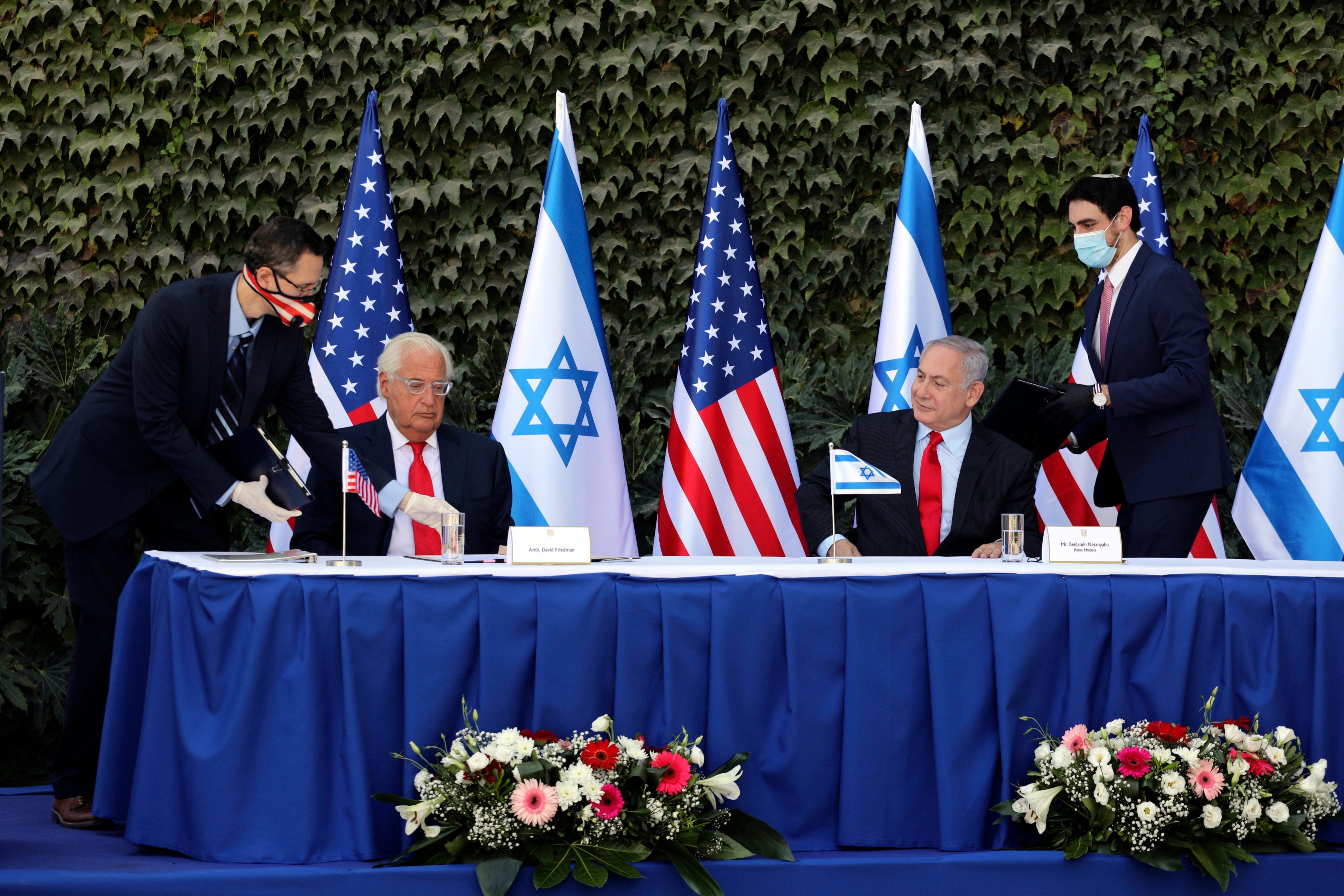US, Israel extend science accords into West Bank settlements
The United States and Israel have amended a series of scientific cooperation agreements to include Israeli institutions in the West Bank

Your support helps us to tell the story
From reproductive rights to climate change to Big Tech, The Independent is on the ground when the story is developing. Whether it's investigating the financials of Elon Musk's pro-Trump PAC or producing our latest documentary, 'The A Word', which shines a light on the American women fighting for reproductive rights, we know how important it is to parse out the facts from the messaging.
At such a critical moment in US history, we need reporters on the ground. Your donation allows us to keep sending journalists to speak to both sides of the story.
The Independent is trusted by Americans across the entire political spectrum. And unlike many other quality news outlets, we choose not to lock Americans out of our reporting and analysis with paywalls. We believe quality journalism should be available to everyone, paid for by those who can afford it.
Your support makes all the difference.The United States and Israel amended a series of scientific cooperation agreements on Wednesday to include Israeli institutions in the West Bank a step that further blurs the status of settlements widely considered illegal under international law.
Until now, three U.S.-Israeli science cooperation agreements excluded projects in areas captured by Israel in the 1967 Mideast war — including the West Bank, east Jerusalem and the Golan Heights.
Israeli and American officials signed protocols amending the Binational Industrial Research and Development Foundation, the Binational Science Foundation, and Binational Agricultural Research and Development Foundation at a ceremony in the West Bank settlement of Ariel.
Israel captured the West Bank and east Jerusalem in the 1967 Mideast war, and in the decades since have built dozens of settlements that are now home to some 500,000 Israelis. The Palestinians seek the West Bank and east Jerusalem as part of a future independent state. Most of the international community considers Israeli settlements illegal under international law and supports the establishment of a Palestinian state based on the 1967 boundaries.
Breaking with decades of American policy, the Trump administration recognized Jerusalem as Israel's capital and moved the U.S. Embassy there. It also recognized Israeli sovereignty in the Golan Heights, which was captured from Syria in the 1967 war. In another reversal, the administration also said the U.S. does not consider settlements illegal.
In a statement, the U.S. Embassy in Israel said that “these geographic restrictions are no longer consistent with U.S. policy,” and that updating the agreements to remove them “further strengthens the special bilateral relationship” between the two countries.
“This geographic restriction within the three agreements was an anachronism, it had no place within our evolving region,” U.S. Ambassador to Israel David Friedman said at a ceremony at Ariel University.
Israeli Prime Minister Benjamin Netanyahu, a strong proponent of the settlements, thanked Friedman for his efforts “to right past wrongs.”
In the West Bank, the Palestinian Authority condemned the step as a “dangerous precedent.”
“This step is an actual American participation in the occupation of Palestinian lands,” said Nabil Abu Rdeneh, spokesman for President Mahmoud Abbas.
Amending the agreements grants legitimacy to Israel’s West Bank settlements and “further blurs the Green Line,” said Brian Reeves, spokesman for Israel’s Peace Now organization, referring to the boundary between Israel and the West Bank.
Eugene Kontorovich, director of international law at the Kohelet Policy Forum, a conservative Jerusalem think tank, said the decision would have long-lasting repercussions.
“This historic international agreement cements U.S. policy that Israeli settlements are not illegal, and puts money behind it,” he said.